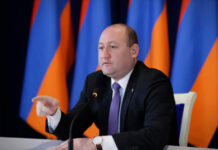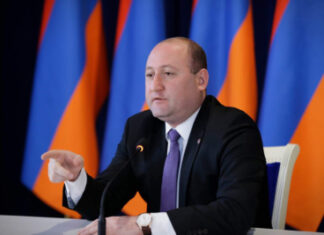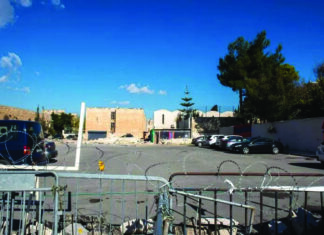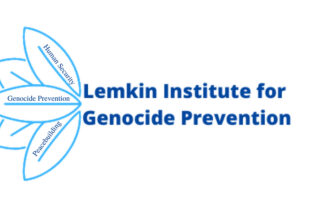By Muriel Mirak-Weissbach
In times of grave crisis, when it seems that the world has gone insane, when violence reigns, taking the lives of hundreds of thousands of innocents, and more often than not, the ideologically crazed perpetrators claim to be killing in the name of religion, then conventional political discourse seems to ring hollow. Crisis management at urgently convoked special summits yields well-meaning declarations and peace plans, but the bloody conflicts spread. In such critical junctures it may be that institutional actors from a loftier stance enter the stage and speak out, to assert a moral authority capable of emboldening political forces to think and act on a higher level.
This is what has occurred on the occasion of the centenary of the Armenian Genocide. True, Armenians worldwide felt a stone had been lifted from their hearts, as one after another leading figure and institution acknowledged it was a genocide. True, the same Armenians felt disappointed (if not betrayed) when the American president failed to do so. Although of undeniable historic value, such events are not self-contained.
The breakthroughs on April 24 reverberate with strategic implications, and they are not limited to the presence, however important, of heads of state, like Vladimir Putin, Francois Hollande and others in Yerevan. What made certain commemorations strategically relevant was that the words spoken carried with them an intention to alter the course of political action in the here and now.
It began with the intervention of Pope Francis on April 12, who, celebrating a mass at Saint Peter’s in Rome in the Armenian rite, spoke out on the genocide. Not only did he break political protocol by using the term genocide; he later explicitly appealed to political leaders to shed their own fears and call things by their proper name. The Pope opened his message bluntly with talk of a “third world war.” “On a number of occasions I have spoken of our time as a time of war, a third world war which is being fought piecemeal, one in which we daily witness savage crimes, brutal massacres and senseless destruction. Sadly, today too we hear the muffled and forgotten cry of so many of our defenseless brothers and sisters who, on account of their faith in Christ or their ethnic origin, are publicly and ruthlessly put to death decapitated, crucified, burned alive – or forced to leave their homeland.”








